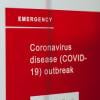testing
 |
Lessons the Software Community Must Take from the Pandemic Due to COVID-19, organizations of all types have had to implement continuity plans within an unreasonably short amount of time. These live experiments in agility have shaken up our industry, but it's also taught us a lot of invaluable lessons about digital transformation, cybersecurity, performance engineering, and more. |
|
 |
The Evolution of Modern Testing: A Slack Takeover with Adam Sandman Thought leaders from the software community are taking over the TechWell Hub to answer questions and engage in conversations. Adam Sandman, director of technology at Inflectra, hosted this Slack takeover and discussed the main challenges testers face today, what modern users expect, and how to approach test automation. |
|
 |
Choosing the Right Threat Modeling Methodology Threat modeling has transitioned from a theoretical concept into an IT security best practice. Choosing the right methodology is a combination of finding what works for your SDLC maturity and ensuring it results in the desired outputs. Let’s look at four different methodologies and assess their strengths and weaknesses. |
|
 |
3 Software Testing Lessons from an Unlikely Source With people trying to stay isolated as much as possible due to COVID-19, going to the grocery store suddenly became something to strategize. At least making a plan, prioritizing risk, and being agile are business as usual for software testers. Here are some of the top lessons testers can learn from our current situation. |
|
 |
Defensive Design Strategies to Prevent Flaky Tests Flaky tests could be the result of issues in the code, but more often they are due to assumptions in the test code that lead to non-relatable results. There are many reasons that tests can fail intermittently, and some can be easily avoided by applying good defensive design strategies. It's all about making your code agile. |
|
 |
Shifting Security Left in Your Continuous Testing Pipeline Security is often the black sheep of testing—an afterthought that gets only a scan before release. We have to make security a first-class testing citizen with full-lifecycle support. For the best impact, introduce security testing into the early phases of the continuous testing pipeline. Here are some tools to help. |
|
 |
Strategically Using Slack Time after a Release When you've worked for months on a big software release, afterward you may want to jump into the next project. But building in some slack time between sprints is a good idea. After a big release, there will probably be more work as new users discover bugs in your software. Plan for some more testing and development. |
|
 |
Building Levels of Testing in Software Development Quality is now considered everyone's responsibility, and many developers are acquiring testing skills to validate their code before it gets to dedicated quality engineers. But where should you start? Consider beginning with unit tests that help you write better code, then building to integration tests and E2E testing. |








